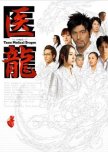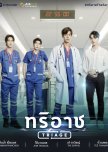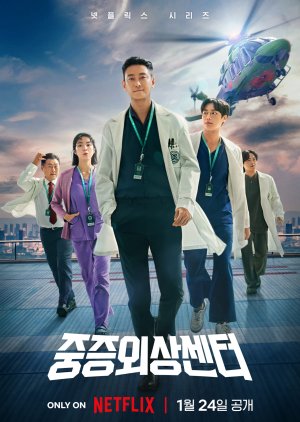

"Partners for Justice" and "The Trauma Code: Heroes on Call" are dramas that explore the world of medical and forensic professionals. Both series focus on the challenges faced by their teams, including bureaucratic obstacles and ethical dilemmas. The protagonists, Dr. Baek Kang-hyuk and Dr. Baek Beom are skilled professionals with a strong sense of justice, often clashing with authorities to uncover the truth. Both dramas are praised for their realistic depiction of their respective fields.

The plots of both shows are very different BUT hear me out! I feel like they are both similarly very fast paced and never leave you bored. While the plot of both shows was nice, I truly think the cast and characters portrayed was what made these shows extremely entertaining. Personally, I thought both shows were bingeable and I would rewatch these shows, especially if I were feeling a kdrama slump.


Follow the joint operations of a police force and a fire department, who together will tell a thrilling story.
Fierce detective Jin Ho Gae is all about catching low-lifes. He solves cases with his excellent ability to grasp crime scenes, read a criminal's mind, and has a strong will to win. While the fearless firefighter Bong Do Jin, who seems cold on the outside, is nice to those around him, and he takes good care of victims. He rushes to fire sites without a moment of hesitation. Joining the duo is Song Seol, an empathetic paramedic who heals broken hearts while treating wounds. both the shows have first responders lending a hand to the patients in need.
Fierce detective Jin Ho Gae is all about catching low-lifes. He solves cases with his excellent ability to grasp crime scenes, read a criminal's mind, and has a strong will to win. While the fearless firefighter Bong Do Jin, who seems cold on the outside, is nice to those around him, and he takes good care of victims. He rushes to fire sites without a moment of hesitation. Joining the duo is Song Seol, an empathetic paramedic who heals broken hearts while treating wounds. both the shows have first responders lending a hand to the patients in need.

Doctor Prisoner centers around an ace doctor in a university hospital’s emergency care center, a skilled professional who treats his patients with full devotion and without discrimination. However, his medical license gets suspended as a result of a medical malpractice incident that arises when the hospital board director causes a ruckus. He then gets his certificate as a medical internist and applies to work at a prison, where his plan is to cozy up to all the bigshots there—business tycoons, celebrities caught for doing drugs, sports stars guilty of gambling—and to win allies, with the ultimate goal of getting revenge against the hospital that ousted him. To do so, he’ll get rid of the existing prison chief doctor and claim the spot for himself.

They both feature doctors with special abilities who care about patients first and do whatever it takes to save their lives. They also are constantly up against out of touch bureaucrats looking for big profits. Both feature many “over-the-top” moments so you’ll need suspend your beliefs. In spite of that, the E.R. and O.R. portrayals are quite spot on. Doctor Stranger has some unique twists as well.


Similar plot lines, different settings. Both have an underdog vibe with programs that are under valued by those in administration.
The Male leads are exceptional in their professions and are recruited into their current position by someone high ranking. Younger second male leads drag their feet at the start but agree to be taken under the wings of the male leads and have a growth arc. Both face budget challenges to their programs and toxic workplace politics, but manage to develop key alliances with colleagues. Both prioritize the people under their care—patients and students. Male leads are take charge and headstrong as they advocate for their programs. Each male lead has a back story that drives their “why” that everyone is not privy to that may cause misunderstandings at first. The team chemistry is great in both.
No romance in Trauma Code, while the male leads in TWT each have their love interests.
The Male leads are exceptional in their professions and are recruited into their current position by someone high ranking. Younger second male leads drag their feet at the start but agree to be taken under the wings of the male leads and have a growth arc. Both face budget challenges to their programs and toxic workplace politics, but manage to develop key alliances with colleagues. Both prioritize the people under their care—patients and students. Male leads are take charge and headstrong as they advocate for their programs. Each male lead has a back story that drives their “why” that everyone is not privy to that may cause misunderstandings at first. The team chemistry is great in both.
No romance in Trauma Code, while the male leads in TWT each have their love interests.
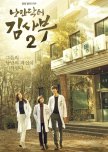
Emergency & Trauma Focus – Both dramas center on high-stakes medical situations where doctors must act quickly to save lives.
Fast-Paced Medical Cases – Each episode features critical, time-sensitive cases, highlighting the pressure and challenges of emergency medicine.
Skilled & Passionate Medical Teams – Both shows showcase doctors who are highly skilled and deeply committed to their patients, even when working under extreme conditions.
Mentorship & Teamwork –
Dr. Romantic: Dr. Kim Sa-bu guides younger doctors, helping them grow in skill and confidence.
Trauma Code: Heroes on the Call: Senior doctors and paramedics play similar roles, leading teams through difficult medical cases.
Emotional & Ethical Dilemmas – Both series explore the personal and ethical challenges that medical professionals face, adding depth to the story.
Realism & Intensity – While Dr. Romantic is more dramatized, both shows depict the harsh realities of emergency medicine, making them engaging for viewers who appreciate realistic portrayals of healthcare.
Fast-Paced Medical Cases – Each episode features critical, time-sensitive cases, highlighting the pressure and challenges of emergency medicine.
Skilled & Passionate Medical Teams – Both shows showcase doctors who are highly skilled and deeply committed to their patients, even when working under extreme conditions.
Mentorship & Teamwork –
Dr. Romantic: Dr. Kim Sa-bu guides younger doctors, helping them grow in skill and confidence.
Trauma Code: Heroes on the Call: Senior doctors and paramedics play similar roles, leading teams through difficult medical cases.
Emotional & Ethical Dilemmas – Both series explore the personal and ethical challenges that medical professionals face, adding depth to the story.
Realism & Intensity – While Dr. Romantic is more dramatized, both shows depict the harsh realities of emergency medicine, making them engaging for viewers who appreciate realistic portrayals of healthcare.
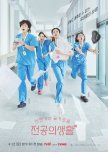
Both the Resident Playbook and The Trauma Code are medical-themed Korean dramas that delve into the lives of healthcare professionals. However, they differ in focus and setting.
Resident Playbook is a spinoff of the popular Hospital Playlist, while Trauma Code is a standalone series.
Both dramas explore the challenges and rewards of working in a hospital setting, but Resident Playbook may emphasize the personal lives and relationships of the medical staff, while Trauma Code could focus more on the complex dynamics of the trauma team and the ethics of trauma care.
Resident Playbook is a spinoff of the popular Hospital Playlist, while Trauma Code is a standalone series.
Both dramas explore the challenges and rewards of working in a hospital setting, but Resident Playbook may emphasize the personal lives and relationships of the medical staff, while Trauma Code could focus more on the complex dynamics of the trauma team and the ethics of trauma care.

